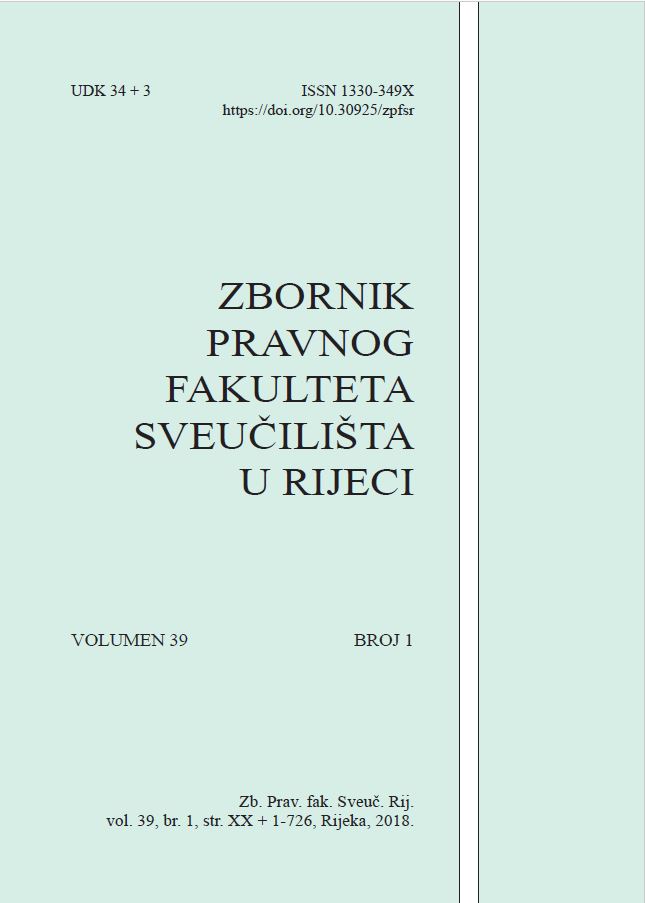JUDICIAL PROTECTION OF CONSUMER RIGHTS – THE (MOST) APPROPRIATE WAY?
DOI:
https://doi.org/10.30925/zpfsr.39.1.18Keywords:
consumer; judicial protection; alternative resolution of consumer disputes; collective redress; European courtAbstract
At EU level, discussions on the future direction of development of consumer protection policy revolve around the open question of efficiency of mechanisms for protection and realisation of consumer rights in national legal systems of EU Member States. Measures and activities of the EU legislator resulted in ‘competing’ mechanisms, which objectively creates a need for examination of the extent to which
their functions overlap as well as if it is possible to detect the (most) appropriate way for protection of consumer rights. The analysis in the paper starts from the presumption that the consumer protection policy was developed within the measures aimed at integration of the Single Market and harmonization of consumer laws, on the one side and the recognized need of consumer protection as a social and political goal, on the other side. In this sense, the main point discussed in the paper is whether the recent development in the field of consumer protection, including the recent judgments of the European court could be interpreted as a reflection of the notion that the efficient judicial protection of (individual) consumer rights is (yet) again a priority at EU
level. In the first part of the paper the development and application of mechanisms which represent a certain kind of alternative to the judicial consumer protection will be presented. In the second part of the paper, we will consider if the all the more present focus on judicial protection of consumer rights at EU level is an indication of a ‘successful experiment which resulted in unexpected outcome’. The required
argumentation will be provided through monitoring of the trend of ‘proceduralization’ or ‘europeanisation’ of the national consumer law in the jurisprudence of the European court. The effect of Article 47 EU Charter of Fundamental Rights and its requirement of efficient protection of procedural rights of individuals before national courts of EU Member States will be analysed in detail. At the same time, the recent activities of the European Commission directed at court proceedings before national courts and removal of barriers in their work in the field of consumer protection will be taken into account.
Additional Files
Published
How to Cite
Issue
Section
License
Collected Papers is an open access journal. Journal does not charge article processing charges (APC) to authors. It is licensed under CC BY-NC licence 4.0.
Collected Papers of the Law Faculty of the University of Rijeka" is an Open Access journal. Users are allowed to read, download, copy, redistribute, print, search and link to material, and alter, transform, or build upon the material, or use them for any other lawful purpose as long as they attribute the source in an appropriate manner according to the CC BY licence.
The papers published in "Collected Papers of the Law Faculty of the University of Rijeka" can be deposited and self-archived in the institutional and thematic repositories providing the link to the journal's web pages and HRČAK.
Upon acceptance of the manuscript for publication by this journal, the author can publish same manuscript in other journals only with the permission of the Editorial Board (secondary publication). A repeated publication should contain a notice as to where the manuscript was originally published.



